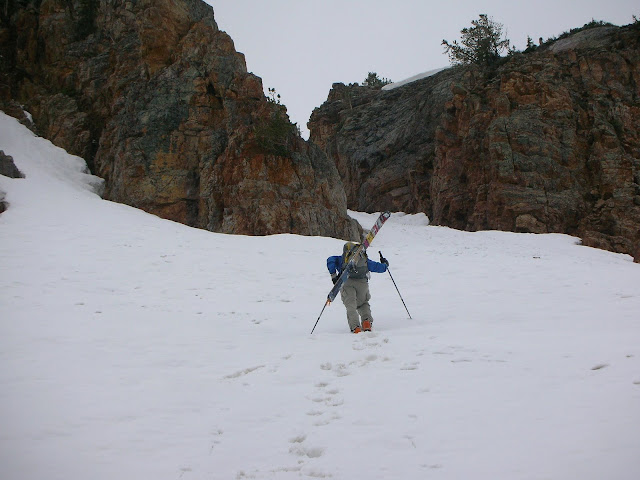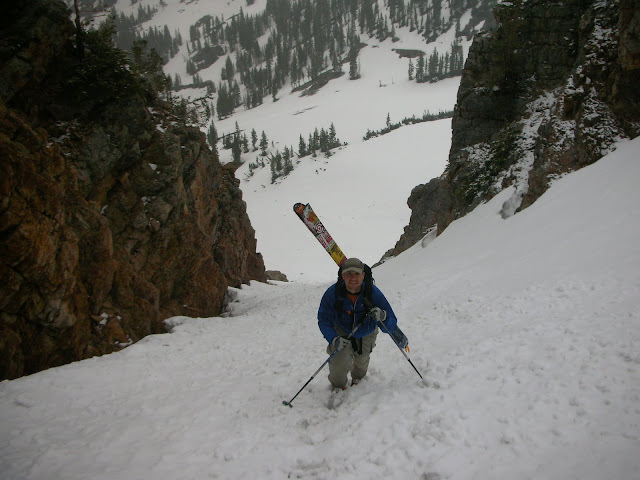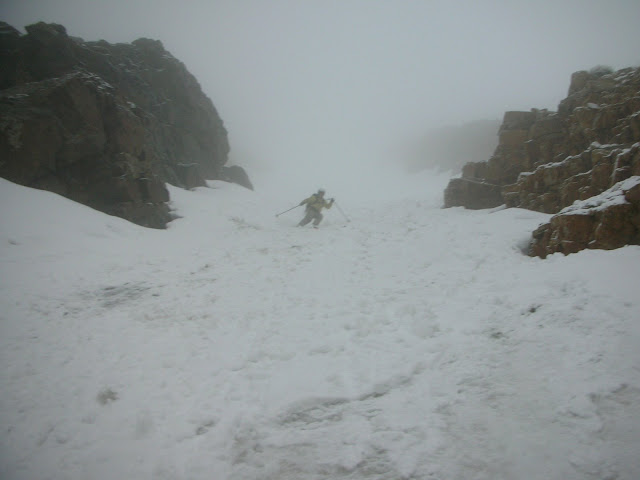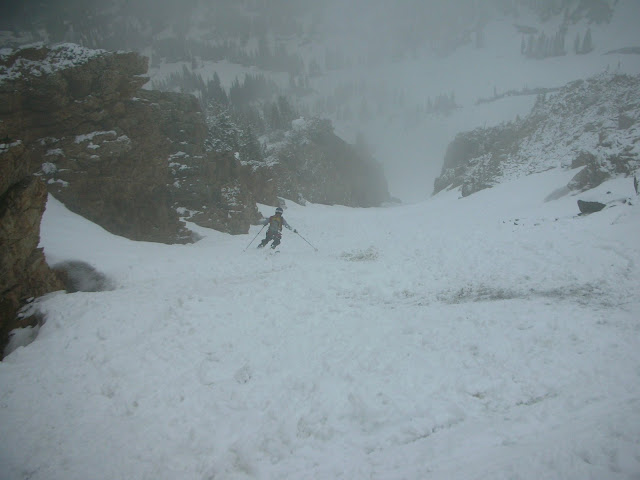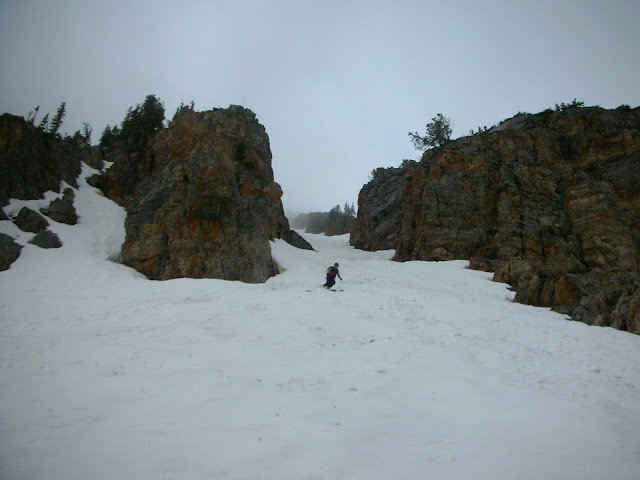On Friday while riding Alpine Loop with Elden, after the
incident with the camaro, but before we began
contemplating snot volume, he asked me what my plans were for the weekend. I told him I planned to race the state championship road race.
"Now I don't know much about training*, but isn't climbing 4,500 feet the day before a race the wrong way to taper?"
*Elden claiming not to know much about training is a classic example of how cyclists are the inverse of fisherman. If a fisherman catches a 12 inch trout, to his friends, it's 15 inches. If a bass weighs three pounds, the story will be that it was four and a half. If you ask a cyclist, on the other hand, if he's going to have a good day, he'll go on and on about how he hasn't been feeling well, has been eating poorly, and feels generally weak when in fact he may feel as though he has the best legs of his life.
The pros are perhaps more guilty of this than anyone--they'll never state their ambition is to win a particular race, going only so far as to express ambitions to be on the podium and immediately naming several other racers who are the "true favorites." One look at Di Luca's face when Menchov went down, though, and it was obvious he wanted to win badly and under any circumstances through which he could take the victory. I'm frankly quite shocked that more retired cyclists don't become professional poker players for all the bluffing they've done throughout their careers.I'm sure Elden was right and it was a poor decision, but that Alpine Loop ride is like a
siren song to me, and with all the rain, I'd only spent 30 minutes on the bike all week.
Once at the race, Steve and I very nearly missed our start. We thought we were going off at 9:20, but at 9:15 we broke from our warmup to see which group they were sending off. Turns out it was ours, so we quickly fell in, at the very back of the pack.
I prefer starting at the front, but I knew we'd all stay together until we got to the climb towards the end of the first of three 16 mile laps. The ride until the climb was unbelievably easy. I think I was on the brakes more often than I pedaled and just let the mass of riders in front pull me along at 23-25 mph.*
*If you've never ridden in a large peleton, it can be quite an experience. Whereas getting behind a single rider can help shield one from the wind, riding behind 30-40 riders is another matter entirely, as the slipstream is so large, it virtually sucks you along, with little opposing forces to overcome save rolling resistance.As I was cruising along in the peleton, I came upon a racer on a
Bianchi 928, Bianchi's Pro Tour model, equipped with
Campy Super Record gruppo. Including the carbon tubular race wheels, it was about $12,000 worth of bike--quite a setup for a Cat. 5. As if that weren't enough, though, he had on black socks that said "Your Bike Sucks" in
celeste green text. By comparison, that may be the case, but bikes don't win races, riders do. I suspected he'd not make the selection after the climb. I was right. I never saw him again.
He wasn't the only one to fall off when the road turned up. The climb was steep at 7-10%, but it was short at only a mile or so. Just long enough that I was able to hang onto the leaders but drop a lot of contenders.
Among those dropped was Spin Cycle's
Alex K., the Mark Cavendish of Utah's Cat. 5 peleton. Surprisingly, Alex was alone and didn't have his usual,
well-organized entourage. The twenty or so of us on the front organized ourselves to try and widen the gap, but about halfway through the lap, Alex, along with
Rick's Omniture teammate Ben and another rider, bridged. I wasn't concerned because I knew they'd used a lot of energy to catch us and that we still had to climb that hill two more times.
Steve and I chatted at this point about race strategy. We decided we'd try to stay with the climbers on the hill but not try to make any breaks and hope for the best in the sprint. We knew the field would thin further the next time up the hill, and as
all-arounders, we thought we'd fare well against the climbers in a sprint. I said to Steve "this assumes we're in that lead group."
"Of course," he said. Which made it clear he was feeling stronger than I was.
Sure enough, second time up the hill, we lost more riders. I was the tenth and last person to make the lead break. This lap we organized ourselves even better and made a more concerted effort to stay away, as Alex K. and company were only about 30 meters behind when we got to the summit. Our organization paid off, and we were able to put enough of a gap on the chasers that we never worried about them again.
The effort of staying away left me hurting on the last lap, and I was glad we had enough of a gap to effectively guarantee I'd get a top ten finish. On the final climb, I knew I'd lose ground, I just hoped it wasn't too much to overcome.
In hindsight, I wish I'd have given everything on that last hill rather than letting a gap open and trying to chase back. One other rider had been dropped, and once I caught him, the two of us worked together to reel in the rest.
With one kilometer to go, we were within 20 meters of the lead group--close enough that the support vehicle moved over so we could bridge. Unfortunately, some of the leaders took the 1K to go marker as their cue to begin the sprint, and we never closed the gap.
Steve was positioned well, mid-bunch with room to go up the right. He timed his sprint perfectly. When I crossed the line, he was giving the tell-tale high-fives to his fellow competitors. State Champion.
We had to wait for nearly two hours after the race before they finally got around to giving him his state champion's jersey, but it's his to wear at every road race for the year. As if he will--it just doesn't go with the bluffing ethic, to say nothing of the target it puts on his back.
Congratulations to Steve. Our nephew's soccer team won the Utah Summer Games tournament, so as a family we have two gold medal winners and a ninth-place finish in a single weekend. Not a bad haul.


